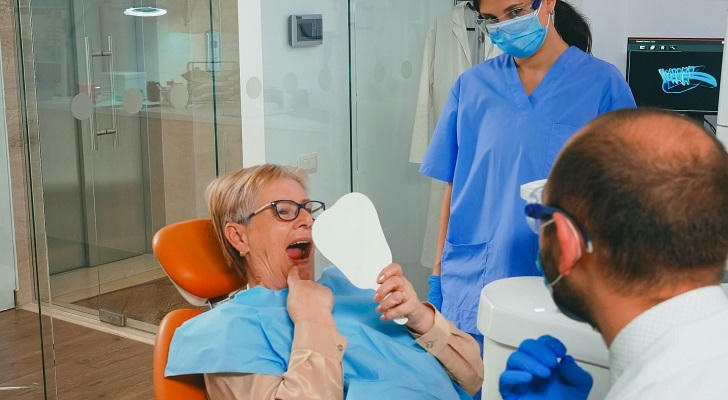How Seniors Can Obtain Free Dental Implants Through Government Subsidies
Oral health issues are widespread among the elderly, with conditions like periodontitis, cavities, and tooth loss being common. Tooth loss not only affects their ability to eat and absorb nutrients but can also cause speech problems and a decline in self-confidence, significantly impacting their quality of life. To alleviate the financial burden associated with the high cost of dental implants, the government has introduced subsidy programs aimed at providing necessary support to seniors in need, helping them regain a healthy and fulfilling life.

Current Status of Oral Health in the Elderly
Elderly individuals face various common oral health issues, such as periodontitis, cavities, and tooth loss. These problems not only affect their oral health but also directly impact their quality of life. Tooth loss can lead to difficulties in eating, preventing seniors from adequately obtaining nutrition, and may cause unclear speech, hindering communication. Additionally, tooth loss often results in a decline in self-confidence, limiting their social interactions. Dental implants, as an effective and long-lasting restoration solution, can effectively address these issues, restoring oral function for seniors and enhancing their quality of life, allowing them to enjoy the pleasures of eating and socializing once again.
Background and Policies of Government Subsidies
Some non-profTo address the oral health issues faced by the elderly population, the government has introduced several supportive policies, including free or subsidized dental implant programs. These policies aim to alleviate the financial burden on seniors and assist them in restoring their oral functions. The funding for dental implant subsidies primarily comes from sources such as medical insurance and support from the civil affairs department and other relevant agencies. These departments work together to provide necessary healthcare coverage for low-income and elderly individuals, improving their overall health status. The implementation of these policies not only helps enhance the quality of life for seniors but also reduces other health issues arising from oral problems, promoting the overall well-being of society.it organizations offer pet medical funds to assist low-income families in obtaining necessary veterinary care for their pets. Eligibility often requires proof of income.
Eligibility
• Age Requirement: Typically 65 years or older.
• Financial Status: Low-income seniors or those who meet the government's subsidy criteria.
• Health Evaluation: Applicants must undergo a dental health assessment by a doctor to determine whether they are suitable candidates for dental implant surgery.
Application Process
Applicants must first obtain and submit the application form through the government website or designated medical institutions. Required documents include identification, proof of income, and medical records. Afterward, the applicant will undergo a comprehensive oral examination at a designated medical facility, where a doctor will assess whether they are suitable for the implant surgery. Once the application materials are submitted, the relevant government department will review them, and the applicant will be notified upon approval.Some veterinary clinics partner with insurance companies to offer free or low-cost wellness plans, covering routine check-ups and vaccinations.
Treatment Arrangement
Once approved, the applicant will schedule the surgery date with the designated medical institution. The doctor will provide guidance on pre-surgery preparations as well as postoperative care recommendations to ensure a smooth recovery and optimal results.Local community organizations or animal shelters may offer free pet insurance or medical assistance programs aimed at helping stray animals or pets belonging to low-income families.
Case
70-year-old Mary Smith (pseudonym) struggled with multiple missing teeth, severely impacting her quality of life. With a fixed income, she could not afford the expensive cost of implants. After learning about the subsidy program offered by the local health department, Mary applied for free dental implants and successfully passed the health evaluation. After the surgery, she not only regained her oral function but also enjoyed food and social interactions again. Mary expressed deep gratitude for the government's assistance, believing that the program greatly improved her life.Some employers provide pet benefits programs that may include free or subsidized pet insurance for their employees.
Key Considerations
• Know the Application Deadline: Ensure timely submission of applications to avoid missing the opportunity.
• Subsidy Coverage: Government subsidies typically cover most of the costs, but applicants may need to bear some out-of-pocket expenses.
Outlook and Recommendations
In the future, government policies regarding oral health for the elderly should focus on promoting dental implant subsidy programs in more regions to ensure that a broader senior population can benefit. Additionally, existing subsidy policies could be improved by simplifying the application process to make it more understandable and accessible while expanding the coverage of beneficiaries. Furthermore, raising public awareness about oral health is crucial; educational and outreach activities can enhance societal support for issues related to elderly oral health, thereby collectively improving the quality of life for seniors.
